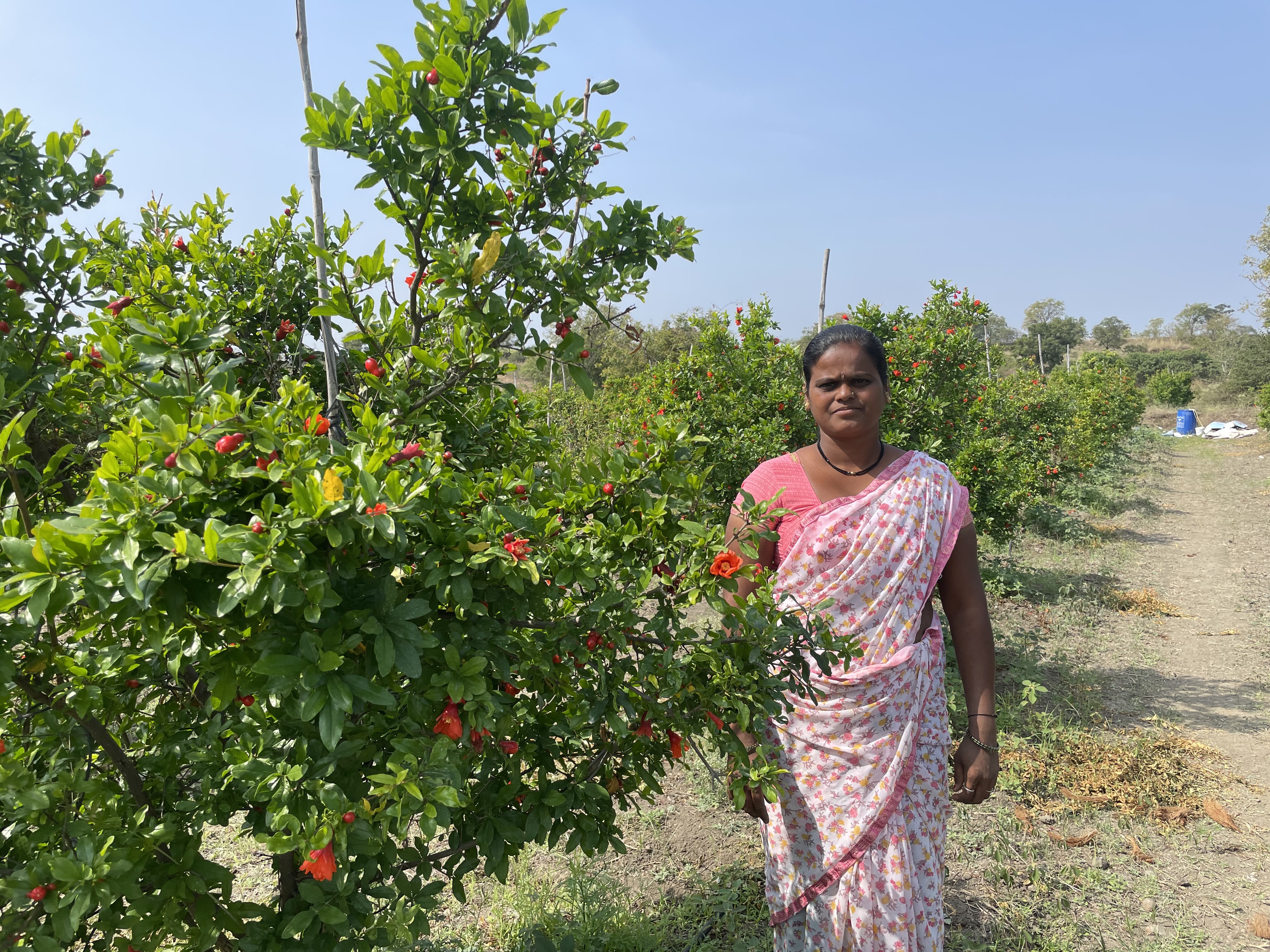The Day the Dam Took Everything
A Mother's Search For Answers and A Better Life
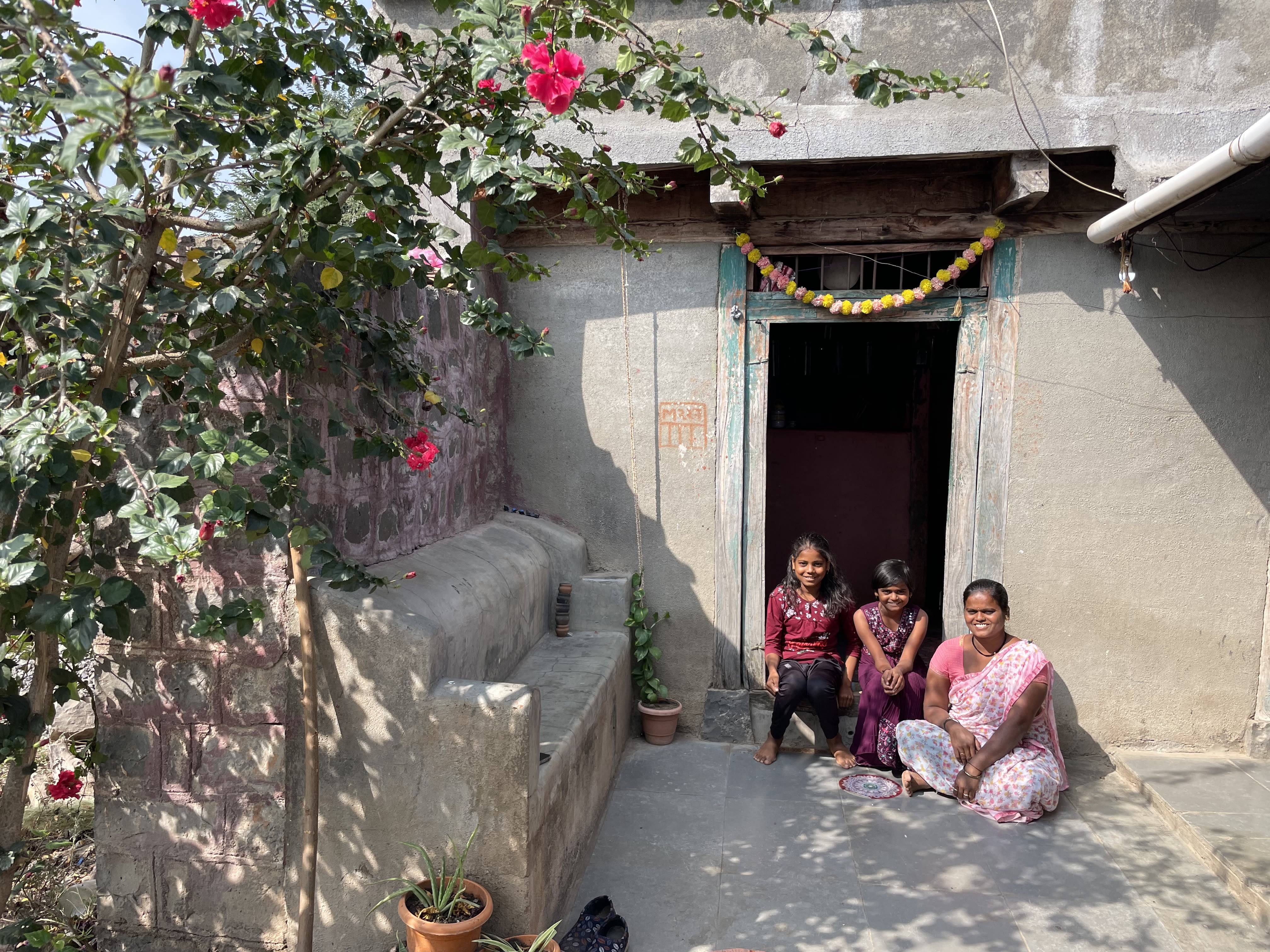
Eight years ago, Vidya Chavan’s husband went for a walk, and never returned. “He died by drowning in the dam near our fields,” Vidya, who lives in Kumbharwadi village in Ashti, Beed, says.
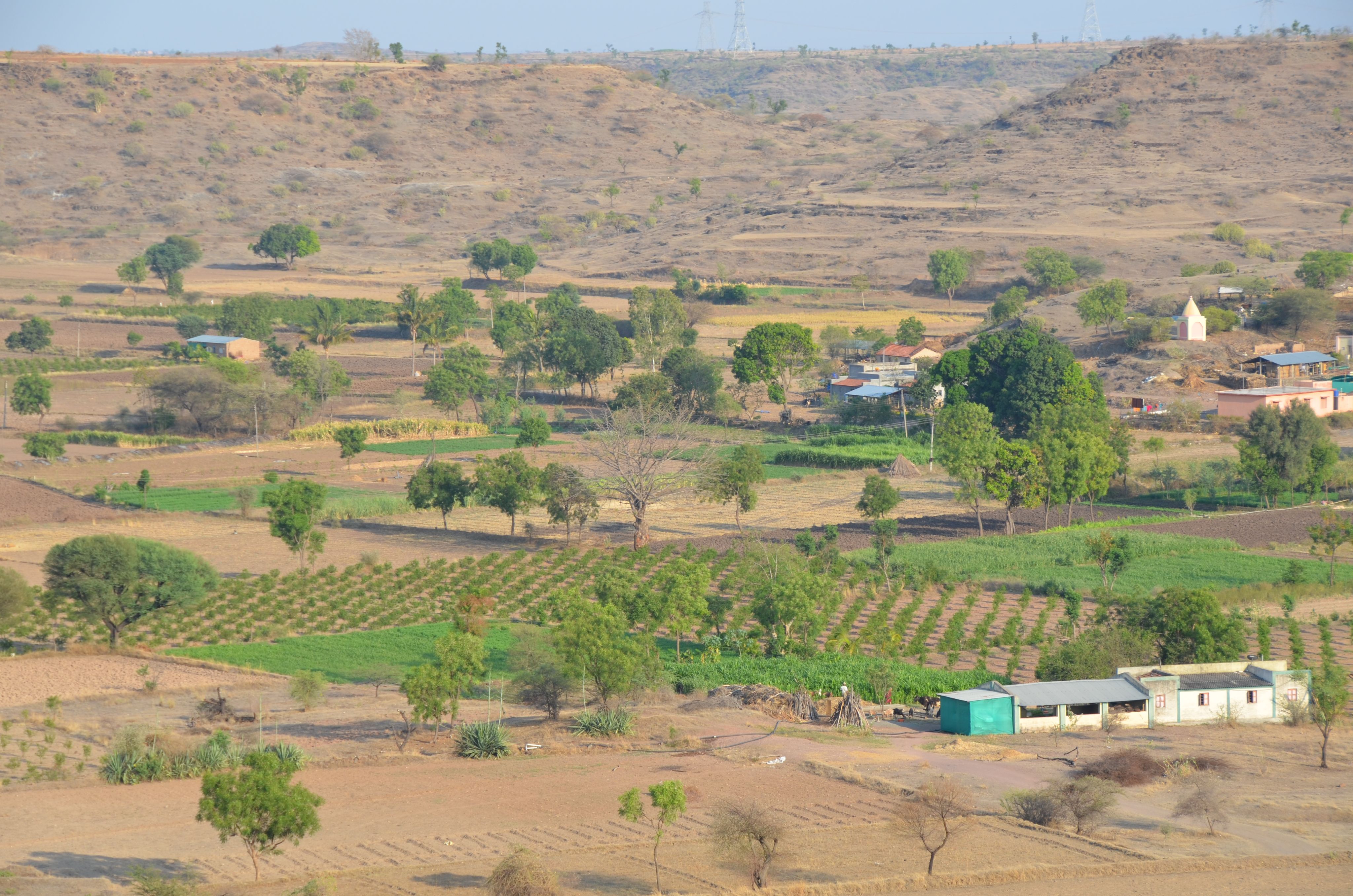
Aerial shot of Kumbharwadi Village
Aerial shot of Kumbharwadi Village
Broken by years of unproductive agriculture, made worse due to unpredictable weather patterns, he decided to end his life, leaving the responsibilities of running the five member household to his wife.
“At first, I didn’t know what to do. Ghar ke bahar bhi kadam nai rakha tha. Lekin phir betiyon ke liye himmat banani padi ( I had never stepped out of the house. But then, for my daughters, I decided to step up),” says Vidya.
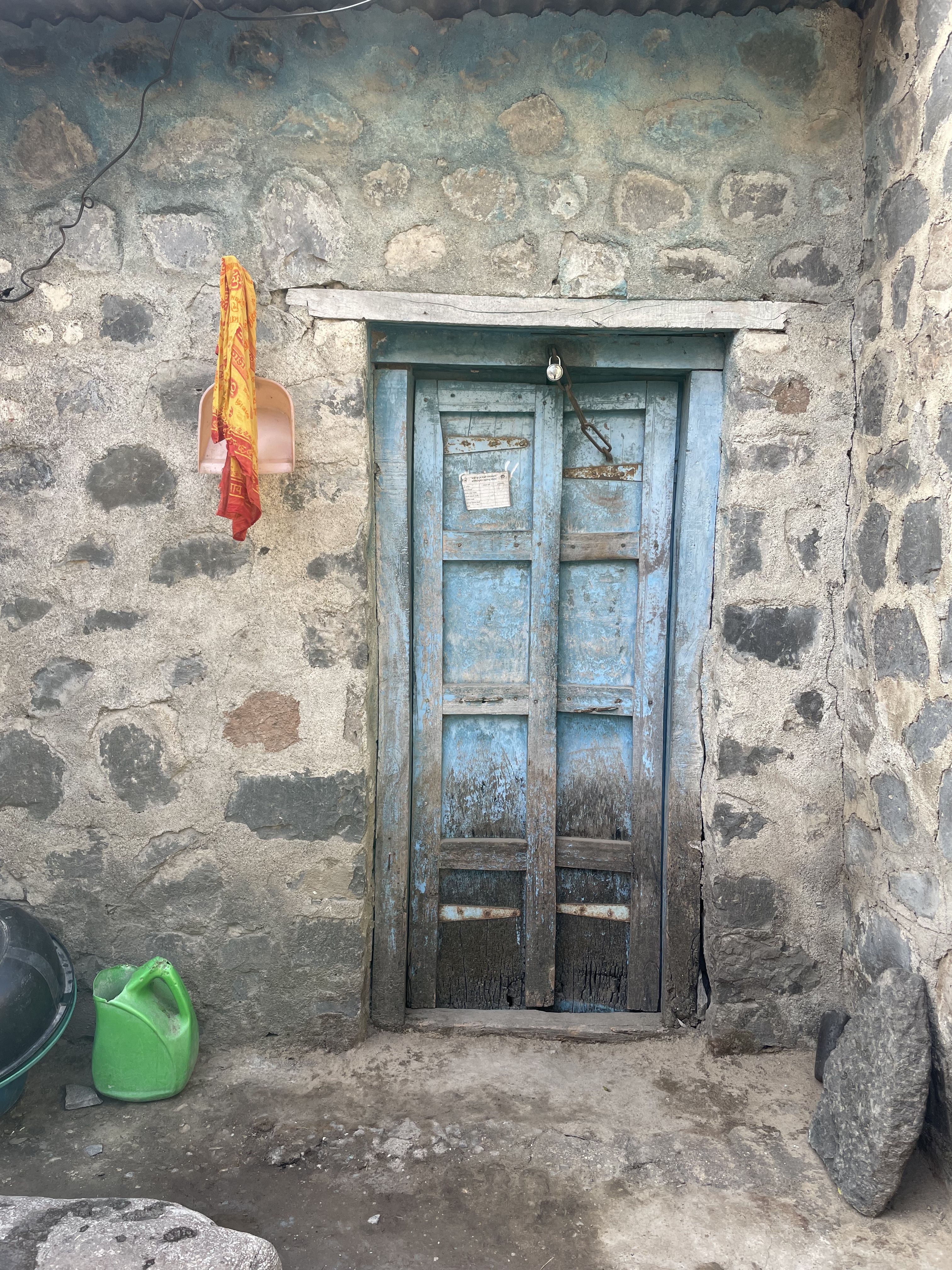
Determined to provide for her three daughters, she started rebuilding her life. “We own more than 15 acres of land, but 6-8 acres are submerged due to the dam near our fields. Since there are no men in the family to work, I farm on the 3-4 acres of land near the house. I grow gram, jowar, wheat, onions and lemons,” she says.
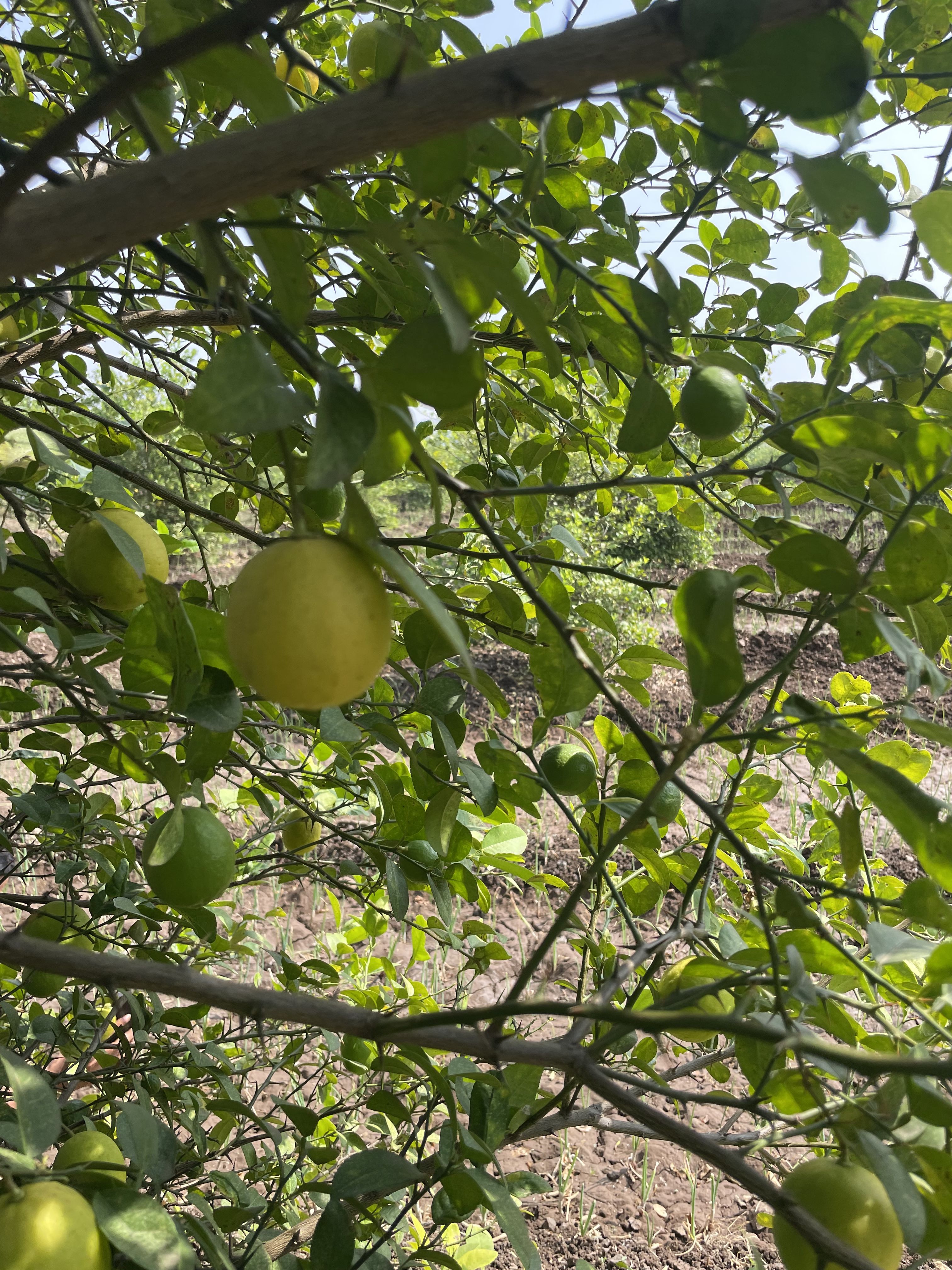
Lemon tree in Vidya's farm
Lemon tree in Vidya's farm
To bring more land under cultivation, Vidya decided to cultivate pomegranate on 1.5 acres of land three years ago. “The pomegranate crop is very susceptible to pest attacks, but if taken care of, there is good profit to be made. I have neighbours who were barely surviving growing maize and jowar, seeing a huge rise in income within years. Once the plantation starts bearing fruit, I am hoping the pomegranate plantation will take care of everything,” she says.
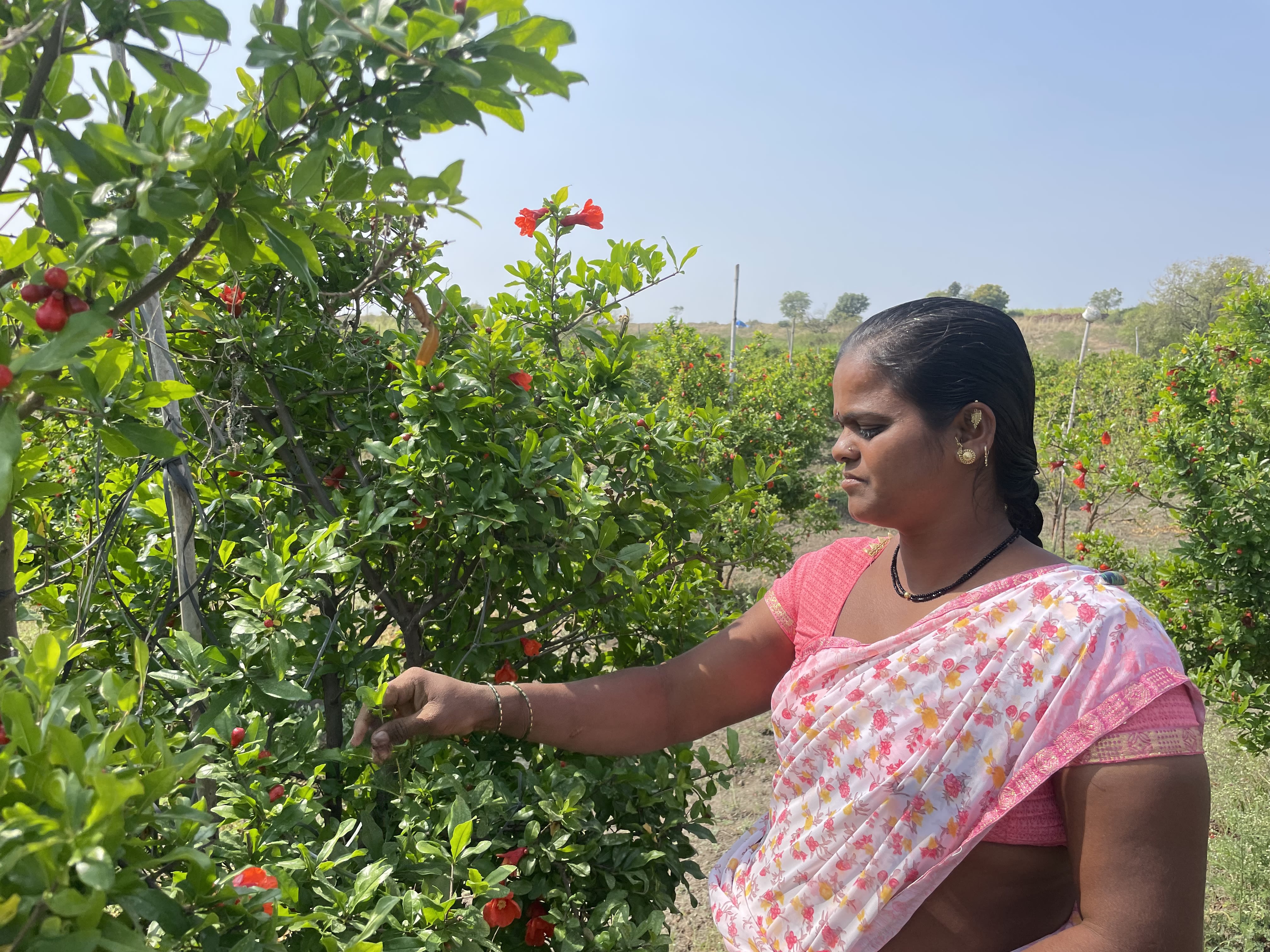
To help reduce the incidence of pest attacks while saving costs, she decided to experiment with bio-pesticides. Biopesticides, in contrast to their chemical alternatives, help manage pests and pathogens without negatively influencing the soil health and environment. They are also light on a farmer’s pocket.
“The plantation was badly affected by Telia disease two years ago, and none of the chemicals sprayed helped. Last year, on recommendation of WOTR, and with support from the Sustainable Livelihoods Programme, I received a bio-pesticides kit for pomegranate, as well as guidance on its right application,” she says.
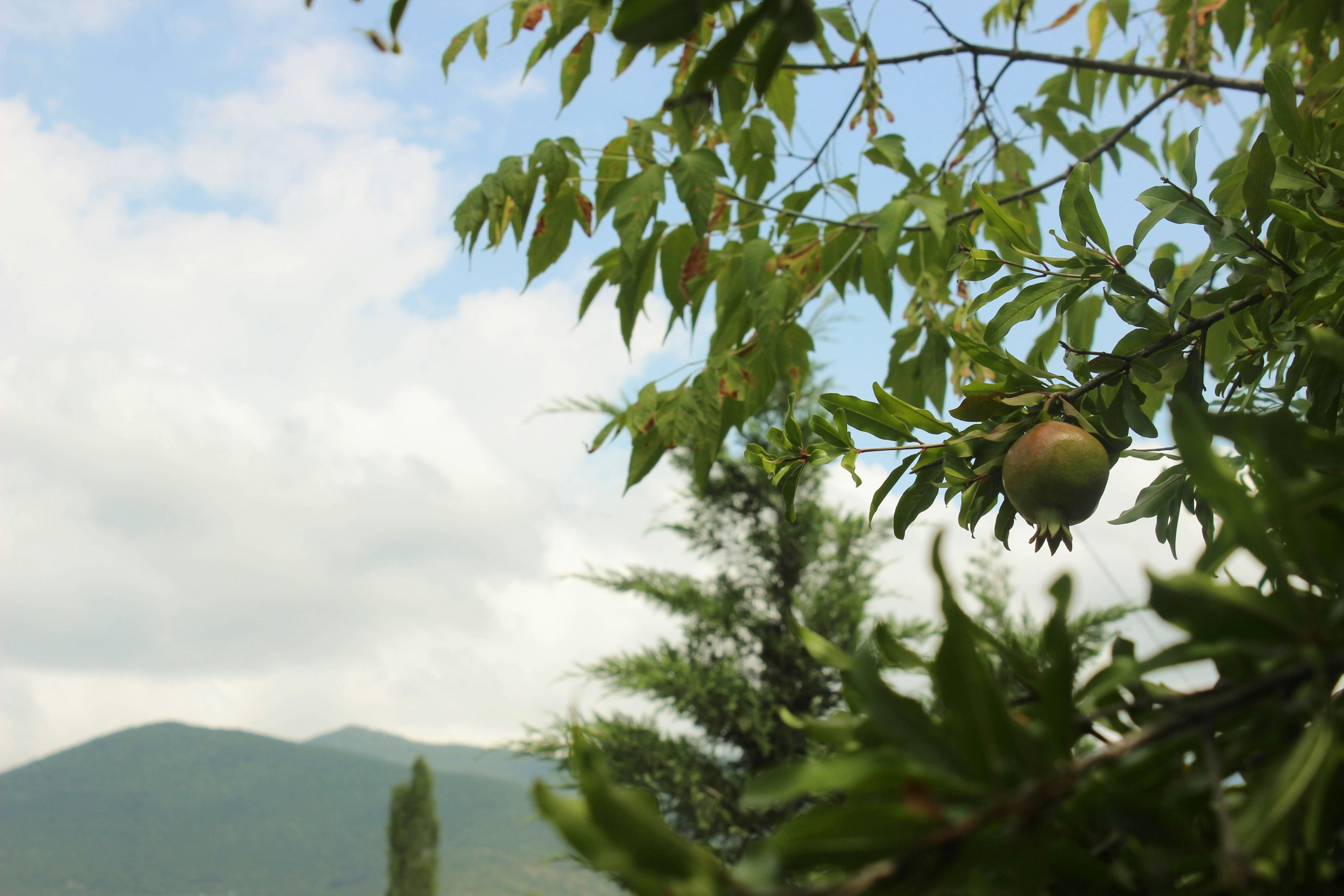
“Contributing 10 percent of the cost, I also received a vermicompost bed and have been using only organic inputs on my farm since then. My fertiliser cost has reduced by more than 50 percent due to organic inputs,” she says.
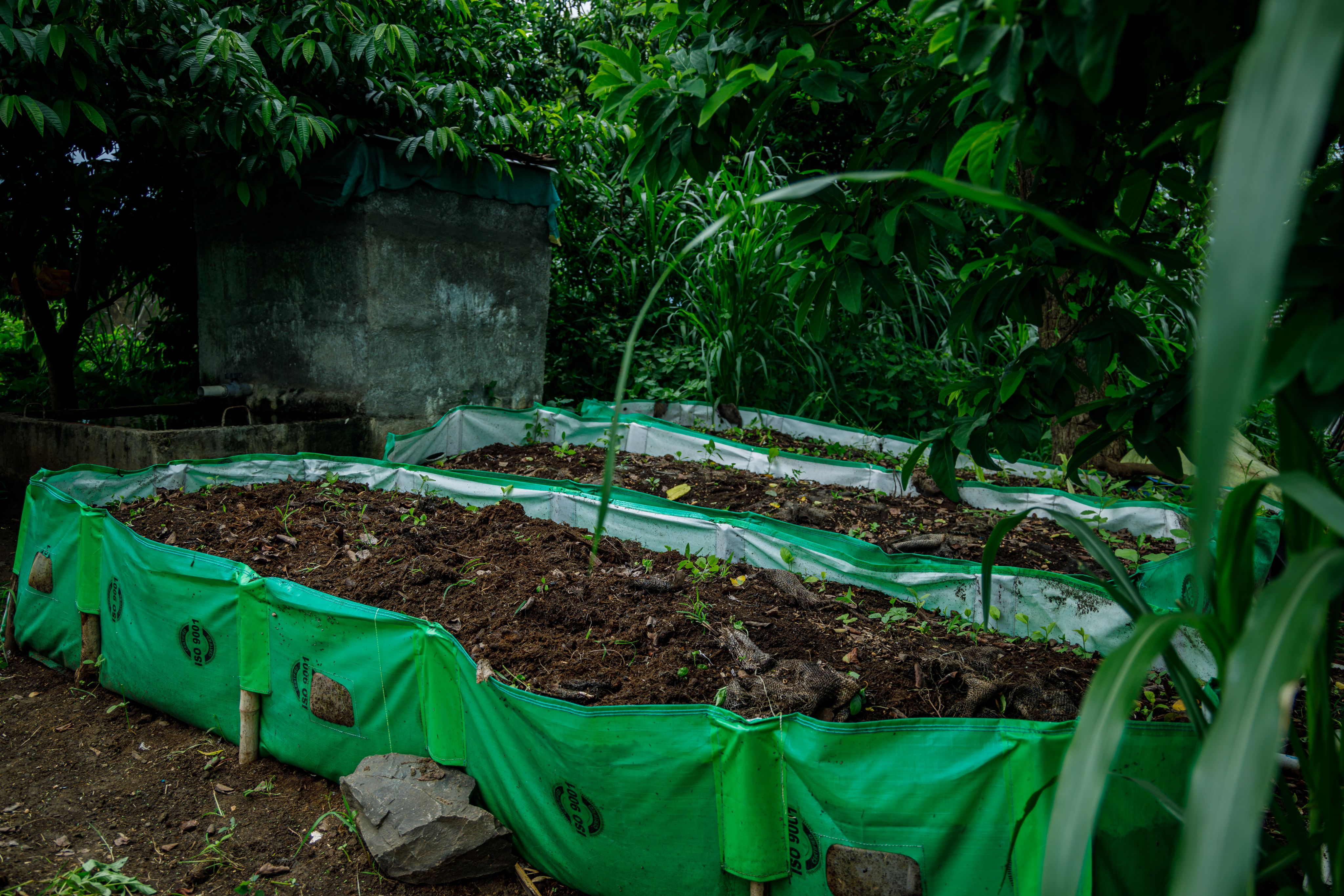
Vidya also received a vermicompost bed as part of the project
Vidya also received a vermicompost bed as part of the project
There is still one more year to go before the pomegranate plantation starts bearing fruit, but Vidya says that the application of bio-pesticides and organic formulations have ensured that she has not had to bleed money on expensive chemical fertilisers.
In addition, there is also a noticeable difference in the size and colour of the crops on account of organic inputs. In her field, she has seen both the yield and quality of produce improve.
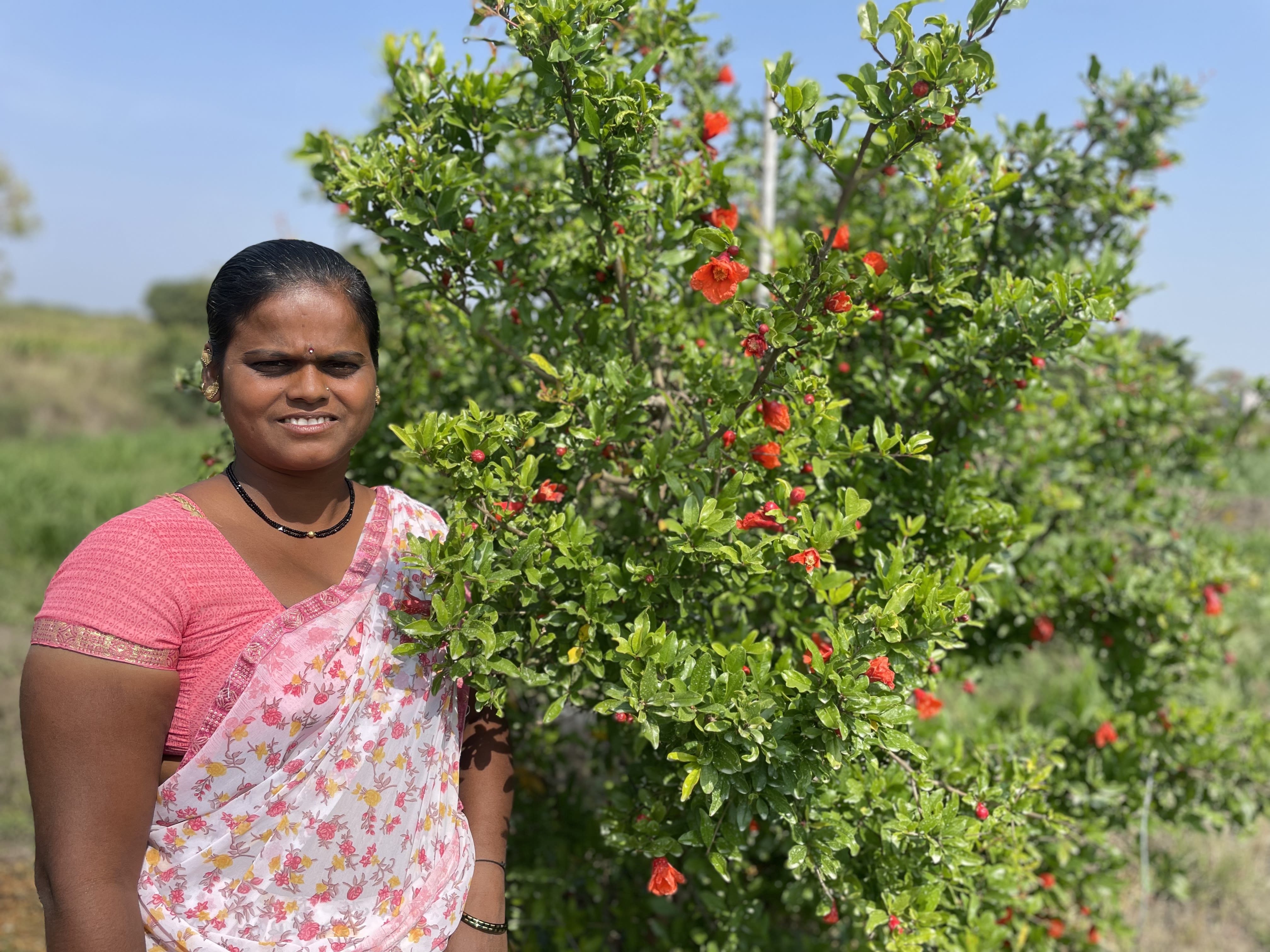
Vidya in her pomegranate orchard, ready for the first harvest next year
Vidya in her pomegranate orchard, ready for the first harvest next year
Undertaking horticulture, and switching to agro-ecologically friendly ways of farming, she says, have changed life for the better, and for the first time since she started farming, she also earned a profit this year. “My income has nearly doubled. Once the pomegranates start bearing fruit, I’m hopeful things will be even better,” she says. The income earned, she says, will be saved for her daughters’ education and marriages.
Avni, 17, is pursuing graduate studies in microbiology in Ahmednagar where she stays in a hostel. Vidya’s primary focus is to ensure that her studies continue undisrupted. Presently, nearly half of the family’s income of 1 lac per annum goes into her education.
Shravani,14, is in Class 9 and dreams of being a police officer. All of five feet in height, her feet barely rest on the gears of her father’s motorcycle, but she loves to ride it around the village and to help her mother ferry milk and produce to the nearby market. She is also her youngest sister Rutuja’s teacher.
The neighbours are in awe of Shravani’s biking skills, but she is in awe of her mother. “She is my mother, my father, my everything,” she says.
Once every two weeks, when Avni comes home from the hostel, the four spend the afternoon picking lemons from their field and make a day out of it by selling what they collect, in the market nearby.
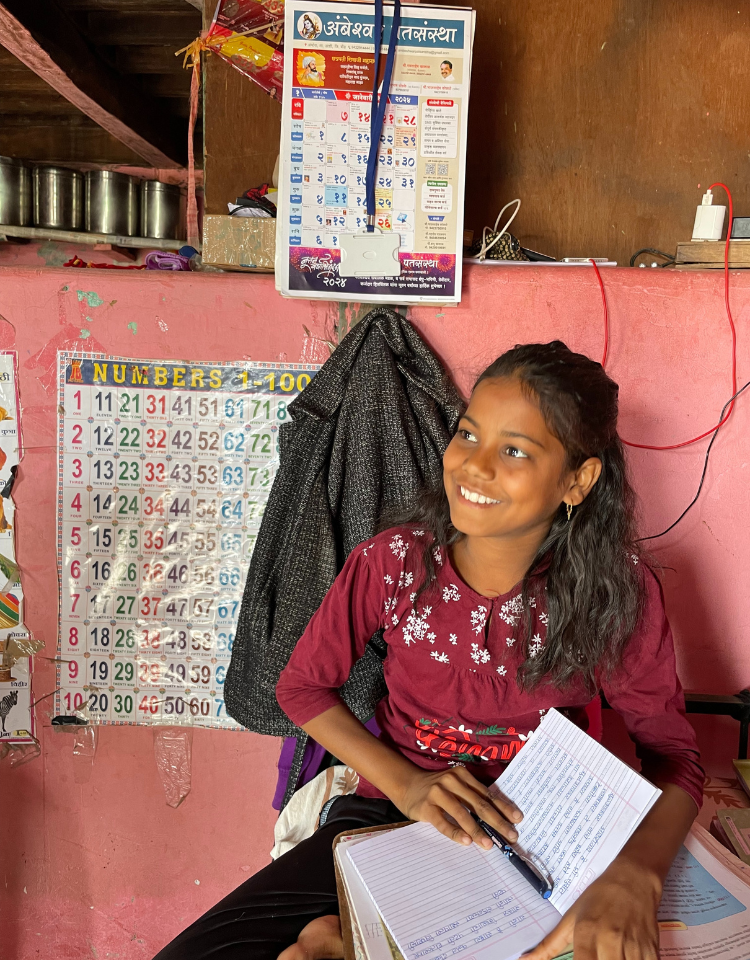
Shravani, Vidya's middle daughter
Shravani, Vidya's middle daughter
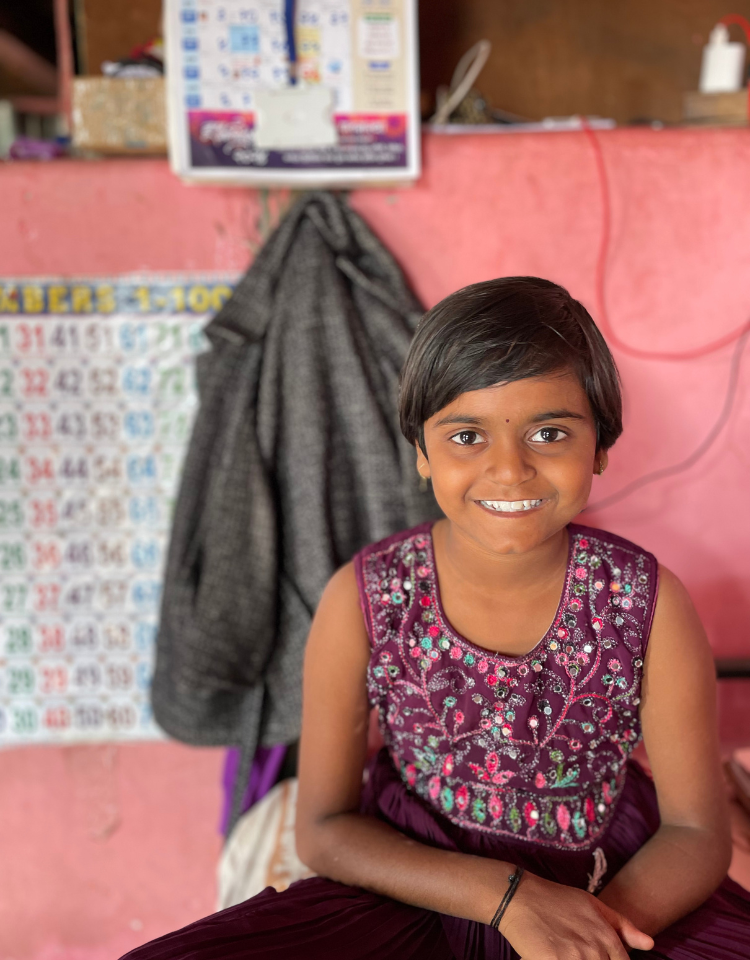
Shravani's younger sister-Rutuja
Shravani's younger sister-Rutuja
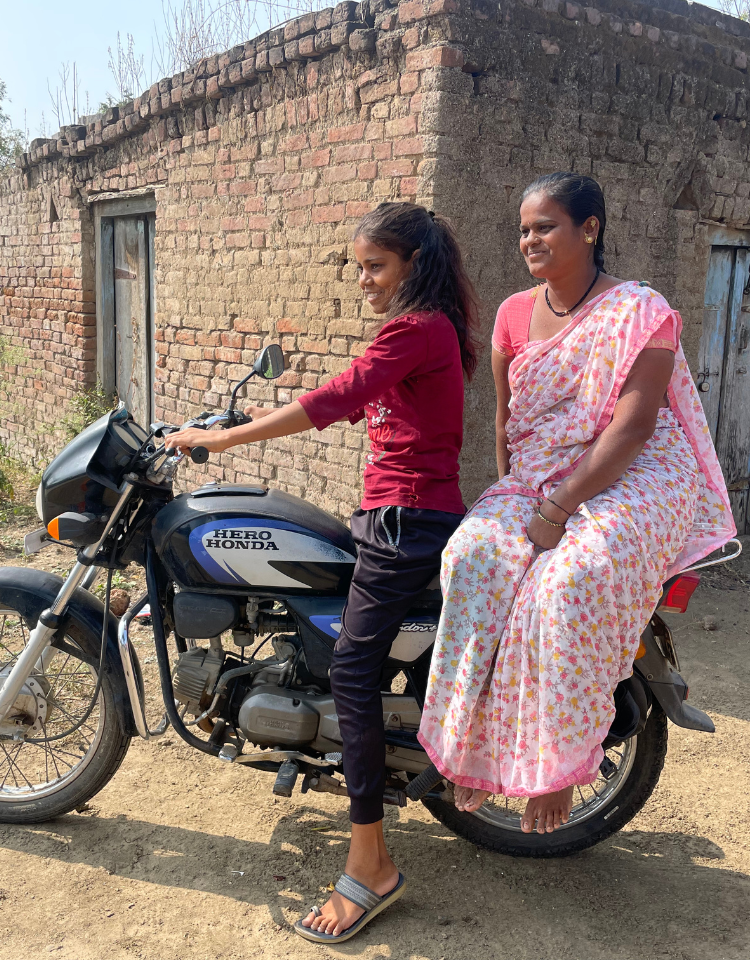
“She is my mother, my father, my everything,” says Shravani
“She is my mother, my father, my everything,” says Shravani
Life has been hard, but the Chavan women are hopeful theirs is about to turn the right corner!
A project supported by

To invest with WOTR for its initiatives to mobilise communities and develop sustainable livelihood oppurtunities, write to Madhavi Kadrekar at info@wotr.org.''
